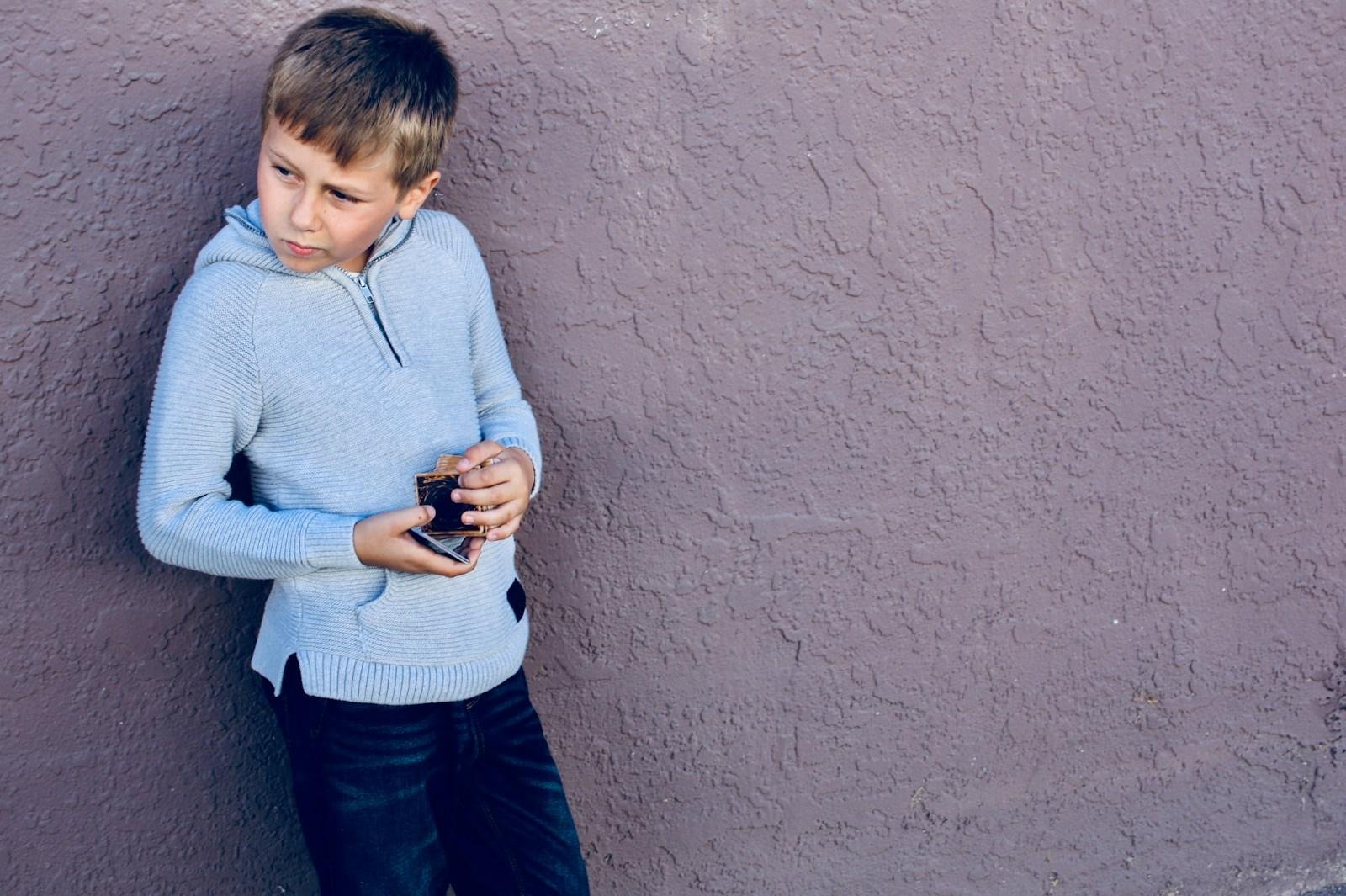(Written in Brian Briscoe’s first-person, conversational tone for the PLACE community)
“They Won’t Talk to Me” — The Silence No One Prepares You For
Let’s be honest—parenting never ends. But no one warned us that one day, the child you raised, fed, cheered for, and maybe worried about nonstop would suddenly stop talking to you.
As a therapist, and as someone who knows this road personally, I’ve talked with thousands of parents in your shoes. When your adult child cuts contact—blocks your number, ghosts your messages, or sets an unmovable wall—it doesn’t just feel like rejection. It feels like a total identity crisis.
You ask yourself:
- “What did I do?”
- “How do I fix this?”
- “What if they never come back?”
If your adult child won’t talk to you, let’s start with this: you’re not crazy, and you’re not alone. This is an incredibly painful experience, and you deserve honest, judgment-free guidance.
Let’s talk about what not to do, what might help, and how to move forward with strength—even in silence.
First, Let’s Talk About the Pain
I want to name the thing most people ignore:
Estrangement is grief.
And it’s not the kind of grief that others easily recognize. There are no casseroles, no sympathy cards, no structured mourning rituals. You’re left to process this loss while trying to function in a world that often doesn’t understand.
When your child cuts contact, you lose more than just a relationship. You lose the ability to say “I love you,” to share milestones, to offer support. You lose your imagined future. Sometimes, you lose other relationships too—grandchildren, in-laws, family friends. That’s real, and it’s okay to grieve that.
What NOT to Do When Your Adult Child Goes Silent
1. Don’t bombard them with messages
It’s tempting, I know. You want to explain, clarify, apologize—something. But repeated messages, voicemails, emails, and surprise visits can deepen the divide.
Why? Because when someone says “I need space,” even silently, pushing in can feel like a violation. What might feel like an act of love to you may feel like pressure or even aggression to them.
Instead: Try restraint. Not silence fueled by spite or shame, but respectful, measured space.
2. Don’t make it all about you
It’s hard to hear this—but sometimes, in our heartbreak, we center our own pain so much that we forget our child might be in pain too.
Maybe they’re angry, confused, or triggered by unresolved wounds. Maybe they’ve been influenced by misinformation or outsiders. Maybe they don’t have the tools to process it. You may not agree with their reasoning—but they’re likely not doing this to torture you.
Try: Approaching the situation with curiosity, not just defensiveness. We’ll talk more about this later.
3. Don’t rush to assign blame (to yourself or them)
Many estranged parents swing between extremes:
- “I failed as a parent.”
- “They’re brainwashed and ungrateful.”
Both of these can block healing.
Blame often oversimplifies what is usually a complex, layered situation. Most estrangements don’t come from one single moment—they come from patterns, misunderstandings, unmet needs, and a lack of tools on both sides.
Instead: Shift from blame to understanding. It’s a gentler—and more useful—framework.
So… What CAN You Do?
Here’s what I often tell parents:
You can’t control whether they respond. But you can control who you become in the meantime.
This is where your power lives. Let’s talk about ways to heal, grow, and prepare—even if your child never picks up the phone.
1. Regulate Your Nervous System First
Before you write the letter, send the message, or have “the talk” you dream of—start here.
Estrangement triggers a fight-or-flight response in the body. That’s why you might feel panicky, obsessively checking your phone, or swinging between numbness and tears.
Use tools to calm your body:
- Deep breathing (inhale 4, hold 4, exhale 6)
- Grounding techniques (“I see, I hear, I feel…”)
- Journaling, meditation, or walking
- Therapy or somatic practices
You can’t show up to a fractured relationship grounded and compassionate if you’re spinning out internally.
2. Reflect Honestly (Not Harshly)
Sometimes estranged parents say, “But I was a good parent!”
And that might be true. But estrangement doesn’t only happen to “bad parents.” It can happen when:
- Emotional needs went unmet (even unintentionally)
- Communication styles clashed
- Children felt unseen, unsafe, or over-controlled
- Trauma wasn’t addressed
- Big life transitions stirred old wounds
This isn’t about assigning fault. It’s about being open to learning. Not to grovel, not to shrink—but to show your child (and yourself) that you’re open to growth.
Try asking:
- What were our communication patterns like growing up?
- Were there times I dismissed or minimized their feelings?
- How did I respond to emotional distress (mine or theirs)?
- How was conflict handled in our home?
You don’t need to be perfect—you just need to be willing.
3. Send a One-Time, Low-Pressure Message (If Appropriate)
Sometimes, after respectful space and reflection, it can help to send a non-demanding message. This is not to “get a response,” but to leave the door open.
Your message might look like:
“I want you to know I love you, and I’m here whenever you’re ready. I respect your boundaries and won’t reach out again unless you want me to. If you ever want to talk, I’m listening—with love and without judgment.”
Avoid:
- Asking for explanations
- Defending your past
- Demanding a timeline
- Guilt-tripping (“I’m your mother—you owe me!”)
Just honesty and openness. And then… you let go.
Hardest thing in the world? Maybe. But it’s also one of the kindest gifts you can give.
4. Build Your Life in the Meantime
Here’s the part most estranged parents resist… at first.
You have to live. Even while they’re gone. Even while it hurts.
You have to rediscover the parts of you outside the parent-child bond. That doesn’t mean “moving on” or forgetting. It means reclaiming your life.
Ask yourself:
- What brings me meaning outside of parenting?
- What relationships still need tending?
- What healing work have I postponed?
- What dreams have I shelved?
Join a support group. Volunteer. Read. Create. Learn. Laugh. Cry. Let your life be wide—even when your heart feels broken.
5. Surround Yourself with Nonjudgmental Support
Estrangement is lonely—but it doesn’t have to be isolating.
You don’t need advice from people who’ve never lived this. You need community. A PLACE. (See what I did there?)
At PLACE, we’ve built support groups, coaching, and a book—all tailored to estranged parents. No blame, no “toxic” labels. Just real support for real humans doing the best they can.
You don’t have to carry this alone. And you definitely don’t have to carry it in silence.
What If They Never Talk to Me Again?
This is the big question, right?
Here’s my honest answer:
It’s possible. And you can still be okay.
If your child never calls again…
You can still heal.
You can still love them from afar.
You can still forgive—yourself, them, life.
You can still find purpose, joy, community, and meaning.
Estrangement is a chapter. Not your whole story.
If They Do Come Back… Be Ready
Many estranged children do return. But often, they return differently—older, guarded, cautious.
And parents need to meet them differently, too.
That might mean:
- Accepting a slower pace
- Listening more than explaining
- Respecting new boundaries
- Letting go of “how things used to be”
Don’t wait until then to prepare. Begin that inner work now.
Because reconciliation isn’t just a reunion—it’s a rebuilding.
In the Silence, You Still Matter
To the parent reading this, staring at an unanswered text or holding back tears in the frozen food aisle: I see you.
This isn’t just about parenting. It’s about love. And grief. And identity. And healing.
If your adult child won’t talk to you, let that truth be a comma—not a period.
Keep living.
Keep loving.
Keep healing.
And when you’re ready, know that PLACE is here to walk with you—whether they return tomorrow, next year, or never at all.
You are not broken. You are still worthy. And you are absolutely not alone.With you,
—Brian








